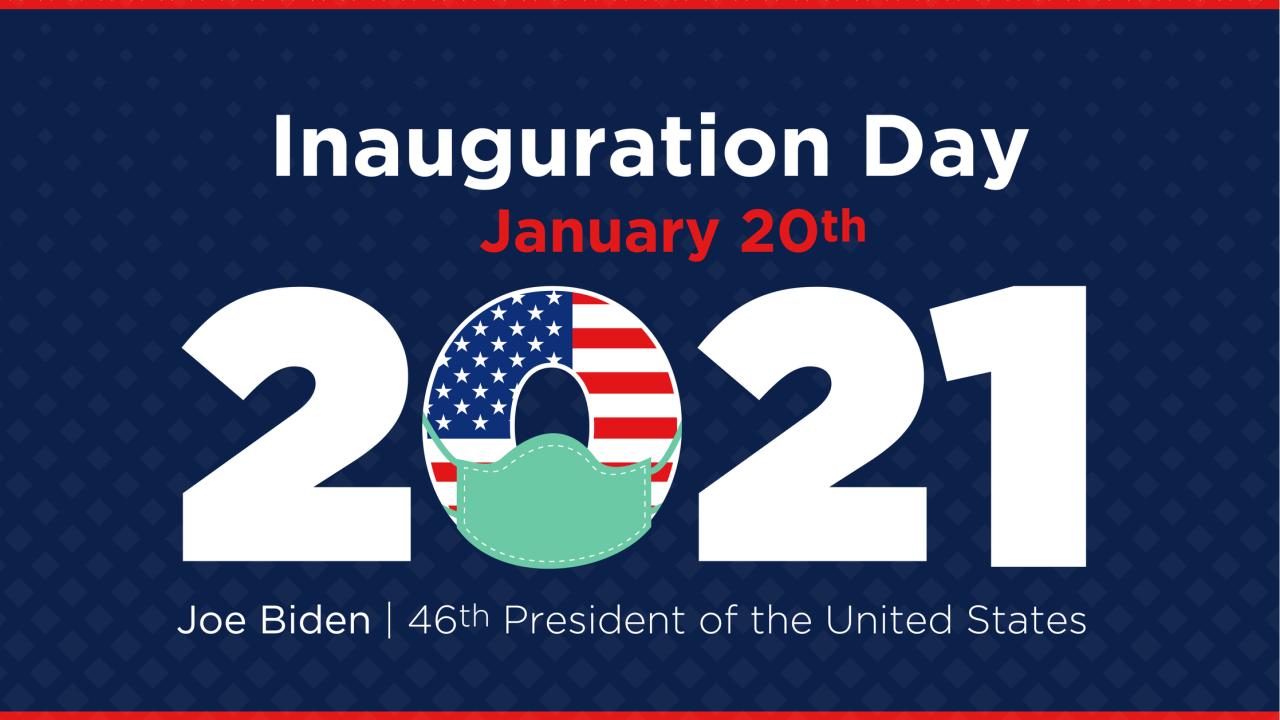Coming out of the presidential elections and series of political events, including an unprecedented insurrection at the U.S. Capitol, UC Davis historians, political scientists, economists and constitutional law professors, and researchers from other fields are contributing their academic expertise to media. Faculty are quoted in this story here covering a recent School of Law panel discussion. That webinar is also covered here.
This source list will be updated regularly in the early days of the new presidential administration as events and policies unfold. This list was updated March 17.
Historic presidencies, electoral college, transitions
The transition of power between one U.S. president and the next typically goes off without a hitch — full of decorum, tradition and stability. The 2021 transition between President Donald Trump and President-elect Joe Biden, however, has been anything but typical.
Eric Rauchway, distinguished professor of history, on this month’s edition of the UC Davis podcast The Backdrop discusses how history can help inform this turbulent presidential transition, including parallels with the transfer of power from Herbert Hoover to Franklin Delano Roosevelt. Rauchway also offers perspectives on the consequences of chaotic transitions and the deadly siege of the U.S. Capitol by a violent pro-Trump mob. That podcast information is here. Listen here.
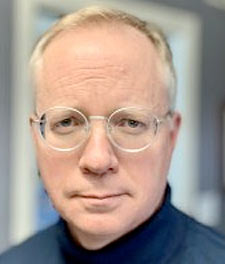
He is also quoted on the difficult transition, thus far, in this article.
Rauchway, a leading scholar of FDR, has expertise in U.S. policy, social and economic history from the Civil War through the Second World War. He is the author of several books, including, most recently, Winter War: Hoover, Roosevelt and the First Clash Over the New Deal.
Rauchway has contributed to The New York Times and The Washington Post and appeared on BBC Radio 4 and NPR, among others. Contact: 530-754-1646, earauchway@ucdavis.edu
Constitutional law, treason, impeachment, sedition
Carlton Larson, professor of law, is a scholar of American constitutional law and Anglo-American legal history. His scholarship addresses a wide range of issues, including enemy combatant detentions, legacy preferences in public universities, the historical basis of Second Amendment rights, and parents’ rights to name their children.
Larson is one of the nation’s leading authorities on the law of treason and is the author of the book The Trials of Allegiance: Treason, Juries, and the American Revolution (Oxford University Press). He talks about his book in this video.
His scholarship has been cited by numerous federal and state courts and has been profiled in The New York Times, The Economist, TIME, and many other publications. He is a frequent commentator for the national media on constitutional law issues. He appeared on the PBS series Open Mind in December. His recent op-ed on sedition is here. He was part of a law school discussion on the attack on the U.S. Capitol. A story about that webinar is here. Contact: 530-754-5731, clarson@ucdavis.edu
Conspiracy theories; roots of modern conservatism
Professor of history Kathryn S. Olmsted has long investigated conspiracy theories, from the Kennedy assassination to 9/11, and many that have cropped up since, even during the primary and general elections. She authored Real Enemies: Conspiracy Theories and American Democracy, World War I to 9/11 (2009); it was reissued this year with a new epilogue on the Trump era. She has also written op-eds comparing Watergate and the Trump impeachment inquiry in The New York Times and Washington Post.
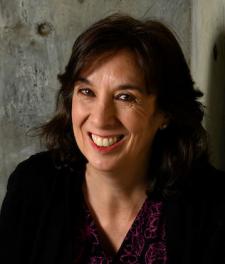
Kathryn Olmsted
Professor of History
Expert on conspiracy theories
In her recent research, she also has re-examined the labor disputes in Depression-era California that led California’s businessmen and media to create a new style of politics with corporate funding, intelligence gathering, professional campaign consultants and alliances between religious and economic conservatives. She has been featured in various podcasts and other media, and commented about modern conservatism in this podcast. Her 2015 book is Right Out of California: The 1930s and the Big Business Roots of Modern Conservatism. Her recent interview on the UC Davis podcast The Backdrop is here. Contact: 530-752-7764, ksolmsted@ucdavis.edu
History and sedition
Gregory Downs, professor of history, studies the political and cultural history of the United States in the 19th and early 20th centuries. Downs has written a variety of works on post-Civil-War America, including two monographs on Reconstruction and Mapping Occupation, and co-wrote the National Park Service’s Theme Study on Reconstruction. Downs has been interviewed and written about recent events at the U.S. Capitol including this op-ed in the Washington Post “Yes, Wednesday’s attempted insurrection is who we are” and in the New York Times article “Sedition: A Complicated History.” He analyzes the history of authoritarianism, white supremacy and political violence in the United States, and what factors allow these issues to persist today. Contact: gdowns@ucdavis.edu
History and African Cultural Affairs
Corrie Decker, associate professor of history, works on the social and cultural history of 20th century East Africa (Kenya, Tanzania, and Uganda). Decker has published several works on education, development, gender, sexuality, and childhood, including a book on the history of women in Zanzibar and another co-authored book on the history of development in Africa. She has co-authored an op-ed in the Washington Post "What Americans across the political spectrum got wrong about the attempted insurrection,” and she has been interviewed for the New Books Network podcast and on a Davis radio program. Decker investigates African experiences of colonialism and international development and how these shape ideas about gender, sexuality and youth.
Leadership and inconsistency
Kim Elsbach, Stephen G. Newberry Chair in Leadership in the UC Davis Graduate School of Management, studies how organizations, their leaders and individuals acquire and maintain images, identities and reputations. She commented recently on leadership inconsistencies in Gov. Gavin Newsom's well-publicized birthday dinner attendance while he continued to urge California residents to stay home.
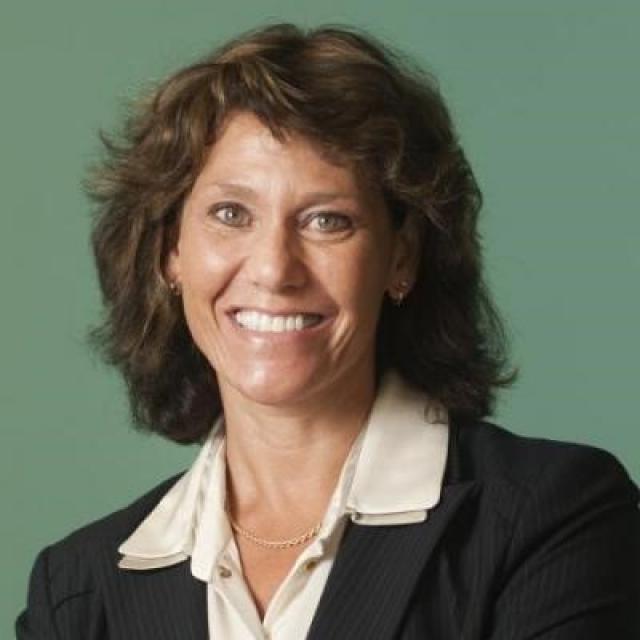
Kimberly Elsbach
Professor of Management
Media source for leadership, consistency
She is the author of the book, Organizational Perception Management. Elsbach says, “People in Western society do not like inconsistency in their leaders. It’s what gets a lot of leaders tripped up. There is so much pressure on leaders to be consistent that it outweighs the need to make the right decision or to be accurate.” Contact: 530-752-0910, kdelsbach@ucdavis.edu
Lawsuits, challenges to vote count
Ashutosh (Ash) Bhagwat, the Boochever and Bird Endowed Chair for the Study and Teaching of Freedom and Equality and Martin Luther King Jr. Professor of Law at the School of Law, can address the validity of Donald Trump’s lawsuits regarding the voting process and election. Bhagwat practiced appellate and regulatory law for two years in the Washington, D.C., offices of the Sidley & Austin law firm. He has written about a variety of subjects ranging from the structure of constitutional rights, to free speech law, to the California electricity crisis. Contact: aabhagwat@ucdavis.edu
Presidency and the Supreme Court
Aaron Tang, professor of law, has commented to media recently on matters concerning the U.S. Supreme Court and presidential appointments. Most recently, he wrote "How to Fix the Supreme Court" in the New York Times. His teaching and research interests include constitutional law, federal courts and education law.
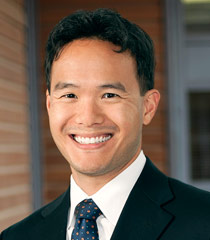
Aaron Tang
Professor of Law
The presidency and the Supreme Court
His article “Rethinking Political Power in Judicial Review,” won the American Association of Law Schools 2018 Scholarly Paper Competition. Tang also writes frequently about the Supreme Court for broader popular audiences. Contact: 203-507-4715, aatang@ucdavis.edu
Election law
Christopher Elmendorf, professor of law, has teaching and research interests that include election law, property and land-use law, statutory interpretation and administrative law. Contact: cselmendorf@ucdavis.edu
Elections, electoral systems, voting behavior, race
Christopher Hare, assistant professor of political science, blogs on applying spatial models to current questions and issues in American politics at voteviewblog.com. He has also consulted for political campaigns on statistical modeling issues.
Hare’s substantive research agenda focuses on ideology and voting behavior in the American electorate, campaign strategy, and political polarization. Methodologically, his work focuses on measurement theory and ideal point estimation, Bayesian methods, and the application of machine learning techniques to model political behavior. He also studies swing voters. Contact: 530-754-0942, cdhare@ucdavis.edu
Lecturer of political science Isaac Hale focuses on electoral systems, legislative representation, political behavior and public opinion. His dissertation project focuses on how electoral systems shape electoral outcomes and candidate behavior. He is also involved in projects analyzing how racial attitudes affect voter behavior and legislative representation, particularly in recent U.S. elections. In a recent study, “Racial attitudes & political cross-pressures in nationalized elections: The case of the Republican coalition in the Trump era,” co-authored with Carlos Algara, University of Texas-El Paso, he found that there continue to be large numbers of racially conservative Democrats who can be persuaded to vote for Republicans candidates. Hale has participated in various media interviews, including a recent story on the electoral college on the Sacramento CBS affiliate. Contact: idhale@ucdavis.edu
Child Tax Credit, safety net
Economists Marianne Page and Marianne Bitler have written a paper on the Child Tax Credit, which Biden has vowed to expand. Read that paper, “Cash for Kids,” published by the Russell Sage Foundation. They propose replacing the complicated array of benefits provided through the tax system with a universal child benefit of $2,000 per child that would be available regardless of parents’ work status.
Page is a professor of economics, director of the Center for Poverty and Inequality Research, and a research associate at the National Bureau of Economic Research. She was appointed in 2020 to California Gov. Newsom’s Council on Economic Advisors. She specializes in inter-generational mobility and the impact social programs have on children. Her recent research includes investigations of the short- and long-term effects of U.S. public health investments in children (such as the WIC and Medicaid programs). She has also published papers on the impacts of educational investments. Contact: mepage@ucdavis.edu
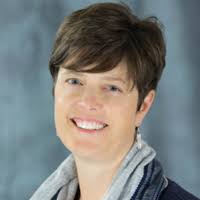
Marianne Page
Professor of Economics
Director, Center for Poverty & Inequality Research. Expertise: Child Tax Credit
Bitler is a professor of economics with the Center for Poverty and Inequality Research. Her research measures the impact of various government safety net programs, including TANF, SNAP, WIC and the ACA. She is chair of the Panel on Improving Consumer Data for Food and Nutrition Policy Research Service for the National Academies of Sciences, Engineering, and Medicine, which released a report, “A Consumer Food Data System for 2030 and Beyond,” in March 2020. She is a research associate with the National Bureau of Economic Research, and she is currently serving on the Institute of Medicine’s Panel to Review the WIC Package. She co-authored a major study for the Brookings Institution’s Hamilton Project about how well TANF responded for families in poverty during the Great Recession. Contact: bitler@ucdavis.edu
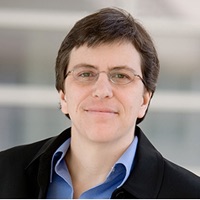
Marianne Bitler
Professor of Economics
Expertise on safety net, Child Tax Credit
Social media
How media use and political talk influence the political divide
Magdalena Wojcieszak, professor of communication at UC Davis and associate researcher (ERC SG PI), University of Amsterdam, co-wrote an article about the Democratic primaries after Kamala Harris dropped out of the race. The article, “What Kamala Harris supporters’ media consumption habits say about who they might support next in the Democratic presidential primary” was published in the United States Politics and Policy Blog, London School of Economics. She also co-authored an op-ed in The Conversation, “Trump Supporters Have Little Trust in Societal Institutions.” Wojcieszak is interested in how the changing media environment creates both opportunities and challenges for informed publics, tolerant citizenry, and responsive governance. She also researches the role of social media in elections. Read this story about her research. Contact: mwojcieszak@ucdavis.edu
Cuihua (Cindy) Shen studies people’s behaviors in online social networks and virtual worlds. Recently, she has taken an interest in the reaction to and diffusion of online misinformation and how it can be corrected, especially misinformation in multimedia format (see a recent paper here). During the election, she has commented on Twitter’s efforts to correct misinformation spread by President Trump and his campaign. She commented in this story in Adweek Magazine. Contact: cuishen@ucdavis.edu.
Corporate political activity
Accounting professor Hollis A. Skaife, of the Graduate School of Management, researches financial reporting issues and corporate governance topics, including the consequences of companies’ spending in political activities. In one study she and a co-author examined the reputational risks in the opportunities that the Supreme Court’s Citizens United ruling created for managers to spend unlimited, and potentially undisclosed, firm resources on independent political expenditures, or IPEs. These opportunities include channeling “dark money,” which is untraceable, through certain nonprofits and trade associations. The research found that it is the structure of a firm’s governance — the concentration of decision rights — that may cause shareholders to walk away when they are unable to hold the firm accountable for its political spending. She is a former practicing certified public accountant. Contact: 608-692-1082, haskaife@ucdavis.edu
Taxes, tax revolts, property taxes
School of Law Professor Darien Shanske has conducted multiple media interviews on property taxes, tax revolts and California propositions that propose to change tax formulas. His academic interests include taxation, particularly state and local taxation, local government law, public finance, and political theory, particularly jurisprudence. Some of his current projects are on the local property tax, the state and local fiscal relationship, the fiscal constitution of California, and the role of reciprocity in Aristotle. Contact: 530-752-5860, dshanske@ucdavis.edu
Immigration detention, undocumented youth, DACA, immigration policy
Caitlin Patler, assistant professor of sociology, can discuss issues related to immigration, including immigration policy, immigration reform, immigration detention (including conditions of confinement and spillover impacts of detention), deportation, DACA, and the situation of undocumented youth and families. She can also comment on such topics as the social and health consequences of revoking DACA and TPS, and the general social costs of noncitizenship. Her research is informed by 20 years of work in immigrants’ rights organizations focused on immigration detention, access to education for undocumented youth and low-wage labor markets. Contact: patler@ucdavis.edu
Immigration policy and civil rights
Kevin Johnson, dean and the Mabie-Apallas Professor of Public Interest Law and Chicano/a Studies at the UC Davis School of Law, is one of the nation’s leading immigration law scholars. He is co-editor of the influential Immigration Prof Blog. Contact: 530-752-0243, krjohnson@ucdavis.edu.
Additional immigration experts are available on this list.
Link to other experts lists (election, environment, trade) here.
Additional top experts in various fields can be found on the UC Davis News page; go to the right column and scroll down to Expert Sources.
Media Resources
Karen Nikos-Rose, News and Media Relations, 530-219-5472, kmnikos@ucdavis.edu
